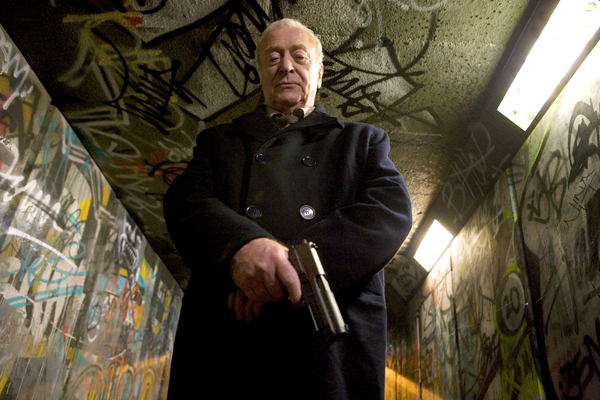|
Reviews of Recent Independent, Foreign, & Documentary Films in Theaters and DVD/Home Video

HARRY BROWN A serious near-classic on street violence and revenge. Harry Brown, a pensioner, lives in a very run-down public housing complex in the outskirts of London. Kids deal drugs and guns and beat up those who happen to venture just a little far out onto their path. One of those is Harry’s friend, Leonard Atwell (David Bradley), who tries to defend himself and winds up stabbed with his own knife. Already distraught (he’s been all alone since his wife’s recent death), Brown knows the cops won’t do much about Leonard’s death, so he takes his skills as a former Marine stationed in Northern Ireland and uses them to exact payback. Immediately moviegoers will flash to Gran Torino, another story of a lonely, grumpy old man mixing it up with gang-bangers in a part of town he should have moved out of long ago. But it actually owes more to Taxi Driver—an avenger who wants to “wash all the scum off the streets,” to quote Travis Bickle—and, of course, Charles Bronson in Death Wish. But as Michael Caine pointed out in interviews, there was a certain underlying joy Bronson experience with his character of Paul Kersey. This film, about the horror of gang violence and crime as an everyday occurrence, really hits the spot far better than Eastwood’s film. In fact, I would go as far as to say Harry Brown trumps Gran Torino in the department of being about “something” (Torino about racism, Brown about vigilantism). At the center of the film—directed with an artful, patient eye by newcomer Daniel Barber and written with wisdom and a tough attitude by Gary Young—is Michael Caine’s performance. We can see ourselves in Brown due to Caine’s sympathy (or empathy) with the character. This is a man of reserve but also resolve, and when he takes to the streets it’s because it’s really a last resort, a kind of fight for survival as well as for revenge. Caine doesn’t hold back when Brown needs to shed tears or when taking on the young punks. In one scene, which I’ll not soon forget, Brown recounts a story about a fellow officer he was fighting alongside who died in the line of duty because of the lack of medical care. It’s one of the best scenes I’ve ever seen with Caine, and overall the film provides him the opportunity for another piece of superb work. Less remarkable is Emily Mortimer, who provides some sensitivity but who’s also a little soft as a no-nonsense detective hot on the heels of Atwell’s killers. But this is so small a flaw that it’s hard to judge the film against it. Harry Brown takes its subject matter by the throat and treats it cinematically with care. Its violent shakes you up. When Brown is hiding in the shadows, one suddenly wonders why Caine didn’t play Batman in the Christopher Nolan movies. DVD Extras:
In the commentary, Caine offers a mini-master class (“Rehearsal is the
work, the performance is the relaxation”). He mentions that he
originally came from the same crime-ridden area as in the film and was
in a gang himself, though not as dangerous (no guns or drugs). He keeps
mum, though, on the sense memory he uses to great effect when he needs
to cry on camera—he will say it’s one specific image. The deleted scenes
are decent to watch, but they add nothing essential to an already tight
narrative.
Jack Gattanella
|

